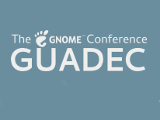What makes a web service free as in freedom?
GNOME provides a complete free software desktop. If you run it yourself you have all the benefits of free software, the freedoms to use, study, share, and improve the software. You are in control of what you do with your computer.
The situation is different when using software which is run by others as a service, even if these others run free software. There you don't have control about what software is run and how. What does that mean for your freedoms? How much control do you still have? Do you know what is happening to your data? Do you have the freedom to switch to a different service? How is your own freedom affecting the freedom of other users of the same service? There are a lot of questions like these.
There are a couple of approaches how to address these questions. There are the user data manifesto [1], the "Terms of Service; Didn't Read" site [2], the GNU ethical repository criteria [3], and other attempts at covering specific aspects of freedom of web services. But there is no definition yet what makes a web service free as in freedom, which is as concise and elegant as the free software definition is.
This presentation will give an overview of where we are, what approaches to defining the freedom of web services exist, and what is missing. It's intended to start a discussion which leads to a definition of what a web service has to provide to give users the same freedom as they have when running free software themselves. This is the beginning of a journey and everybody who cares about freedom is invited to join.
[1]: https://userdatamanifesto.org/
[2]: https://tosdr.org/
[3]: https://www.gnu.org/software/repo-criteria.en.html
